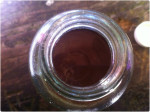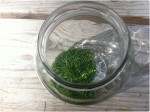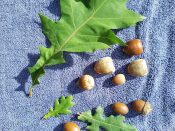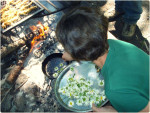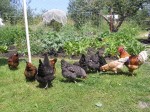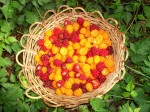My first taste of ‘real’ root beer was during one of Wolf College’s day camps. I had never had homemade root beer before, only the commercial soda, so this was a real treat. I love fizzy drinks and herbal root beer was unlike anything I had tasted before. It had a complex taste, with the anise, sassafras, and sarsaparilla (what fun words) most prominent, along with spicy ginger and the deeper flavors of dandelion root and cherry bark. It tastes almost nothing like commercial root beer and I’m glad — it has a unique, herbal taste.
Root Beer in History:
Root beer has a long history — it was first documented during the middle ages, but it could be an even older concoction. During medieval times, Root Beer was called a ‘small beer,’ a spiced fermented drink with very little alcohol content. Water was rarely drank since it was often polluted, and milk was considered only a drink for small children. So, fermented drinks like wine, beer, and cider were the most common beverages during this time period.
Fast forward to the 19th and 20th centuries: Root Beer was being sold as a remedy for a variety of ailments. This was the time of the Pharmacy, where one could go to pick up drinks, tonics, and tinctures that supposedly cured just about anything. In fact, Root Beer was advertised as an elixir to ‘purify the blood, promote strength and vigor and change any morbid action of the stomach, fever and kidneys.‘ It was also described as a ‘pure, delicious, health-giving temperance drink, that does the children good, refreshes and invigorates the grown folks.’
We can make our own homemade Herbal Root Beer that is healthy, good, and invigorating to both kids and grown folks alike — a 21st century elixir.
* Note: for this recipe we did not use a fermented starter (like a ginger bug or whey). Fermented starters give the herbal root beer a ‘fermented’ taste — think herbal kombucha. Instead, we use a combination of herbs to achieve the flavor plus seltzer water for fizz.
Ingredients for Herbal Root Beer:
1/4 cup sassafras bark
1/4 cup winter green leaf
2 tablespoons sarsaparilla root
1 tablespoon licorice root
1 tablespoon ginger root
1 tablespoon dandelion root
1 tablespoon fennel seed
1 tablespoon birch bark
1 tablespoon allspice
1 tablespoon cherry tree bark
1 teaspoon juniper berries
1 cinnamon stick
1-2 anise star pods
Stevia or unrefined cane for sweetener
Seltzer / fizzy water
Optional: 1/2 lemon
All of these herbs can be ordered from Mountain Rose Herbs
You will need: a clean jar, a pot and stove, a cheesecloth or jelly strainer bag
 Hannah began her apprenticeship at Wolf Camp in 2013 and graduated as a lead herbal instructor in 2014. Join Hannah and other Wolf College herbalists during our annual Wild Ethnobotany Expedition: The Herbal Foray the second week of July on Lake Sammamish near Seattle.
Hannah began her apprenticeship at Wolf Camp in 2013 and graduated as a lead herbal instructor in 2014. Join Hannah and other Wolf College herbalists during our annual Wild Ethnobotany Expedition: The Herbal Foray the second week of July on Lake Sammamish near Seattle.
Hannah graduated from the University of Oregon in 2014 with a Bachelor’s Degree in Foreign Languages. She has her own blog, where she writes about her love for crafts, animals, plants, cooking, and the outdoors: rainmountaincrafts.com





